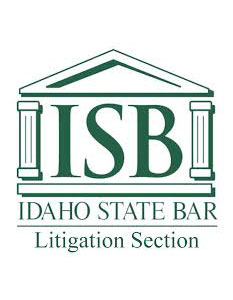Slip and fall accidents are among the most common personal injury claims in Idaho. They can occur at any time, in places ranging from grocery stores to sidewalks, and the injuries sustained can range from minor bruises to severe, life-altering trauma. After a slip and fall, victims often need to navigate a complex process involving insurance adjusters to seek compensation for their injuries. Understanding how to handle insurance adjusters effectively can make a significant difference in your claim’s outcome.
When you experience a slip and fall in Idaho, one of the first steps you might take after seeking medical attention is filing a claim with the property owner’s insurance company. From that point forward, you will likely find yourself communicating with an insurance adjuster. These professionals work on behalf of insurance companies, evaluating claims, investigating incidents, and determining how much compensation, if any, to offer the victim. While it may seem straightforward, dealing with an insurance adjuster is anything but simple. Knowing what to expect and how to interact with them is critical in protecting your rights and ensuring a fair outcome in your case.
Understanding the Role of an Insurance Adjuster
The insurance adjuster’s role in a slip and fall case is crucial to understand. While they may seem polite and cooperative, adjusters work for the insurance company, not for you. Their primary goal is to minimize the amount the company will pay on a claim, protecting the company’s financial interests. This means that they will scrutinize every aspect of your claim, from the circumstances of the fall to the nature and extent of your injuries. They may even attempt to downplay the severity of your injuries or argue that you were partially at fault for the accident.
This doesn’t mean that all adjusters are deceptive or insincere. However, their job is to protect their employer’s bottom line, which means you must remain cautious and measured in your dealings with them. It is common for adjusters to ask for recorded statements, request medical records, or offer a quick settlement before you’ve had time to fully assess the impact of your injuries. As tempting as it might be to settle quickly, especially when faced with medical bills and lost wages, accepting an offer too soon can result in far less compensation than you deserve.
What to Expect in Your First Interaction with an Insurance Adjuster
Your first interaction with an insurance adjuster will likely occur shortly after the accident. After you report the slip and fall, the insurance company will assign an adjuster to handle your case. The adjuster may reach out to you by phone or mail, requesting information about the accident, your injuries, and your medical treatment. It’s important to be aware that anything you say to the adjuster can be used to minimize your claim later on.
The adjuster may ask you to provide a recorded statement. While this request may seem innocent, it’s often used to find inconsistencies in your story or statements that can be twisted to suggest that the accident was partially your fault. For this reason, it’s usually advisable to decline giving a recorded statement without first consulting an attorney. You are not legally required to provide a recorded statement, and it’s in your best interest to avoid doing so unless you’ve received legal advice on how to proceed.
Additionally, the adjuster will likely ask for access to your medical records. While you do need to provide documentation of your injuries to support your claim, it’s important to limit the scope of what you provide. The insurance company does not need your entire medical history, only the records that are directly related to the injuries caused by the slip and fall. If you provide too much information, the insurance company may attempt to argue that pre-existing conditions, rather than the fall itself, caused your injuries.
The Importance of Preserving Evidence
One of the most critical steps in dealing with insurance adjusters after a slip and fall accident is preserving evidence. The insurance company will thoroughly investigate the accident to determine liability, and having strong evidence can significantly strengthen your claim. As soon as possible after the fall, document everything. This includes taking photographs of the scene, particularly the hazard that caused your fall, whether it be a wet floor, uneven pavement, or debris. Photographs can provide powerful evidence that the hazard existed and contributed to your accident.
In addition to photographs, gather the contact information of any witnesses who saw the fall or the conditions leading up to it. Witnesses can provide valuable testimony that supports your version of events, particularly if the insurance company attempts to dispute the circumstances of the accident. The more evidence you have, the more difficult it will be for the adjuster to dispute your claim.
If you seek medical attention immediately after the fall, keep detailed records of your treatment and any expenses related to your injuries. Medical bills, prescriptions, physical therapy, and other related expenses should all be carefully documented. Even if your injuries seem minor at first, it’s important to get checked by a healthcare professional. Some injuries, like concussions or soft tissue damage, may not show symptoms immediately but can worsen over time. Failing to seek prompt medical care can also be used by the insurance company to argue that your injuries were not serious or were unrelated to the accident.
Navigating Settlement Offers
At some point during the process, the insurance adjuster may offer you a settlement. This is often presented as a way to resolve your claim quickly, sparing you the time and stress of a prolonged process. However, initial settlement offers are usually much lower than what you may be entitled to receive. The insurance adjuster’s goal is to settle the claim for as little money as possible, often before you’ve had a chance to fully understand the long-term impact of your injuries.
If you are presented with a settlement offer, it’s important not to accept it immediately. Take the time to carefully review the offer and consider all of your current and future medical expenses, lost wages, and any other costs related to the accident. Once you accept a settlement, you waive your right to pursue additional compensation, even if your injuries worsen or you incur further expenses. This is why consulting with an attorney before accepting any offer is critical. They can help you assess whether the offer is fair and negotiate with the adjuster for a better settlement.
Rules of a Personal Injury Claim Choosing a Personal Injury AttorneyRelated Videos
Handling Pressure from Insurance Adjusters
Insurance adjusters may use various tactics to pressure you into accepting a low settlement. They may imply that their offer is the best you’ll get, or that if you don’t settle soon, you may not receive any compensation at all. Some adjusters might even suggest that your claim is weak or that you were at fault for the accident, in an attempt to undermine your confidence.
It’s important to remember that you are under no obligation to settle quickly, and you have the right to take your time in reviewing any offers. If you feel pressured or uncertain about how to proceed, consider seeking legal advice. An experienced personal injury attorney can handle the negotiations on your behalf, ensuring that the adjuster does not take advantage of your situation. They can help you understand your rights, assess the strength of your claim, and pursue the compensation you deserve.
The Value of Legal Representation
Dealing with insurance adjusters can be an overwhelming and intimidating process, especially when you are also recovering from injuries. Insurance companies employ adjusters who are highly skilled in minimizing payouts and protecting the company’s interests. Having legal representation can level the playing field and protect your rights throughout the process.
An attorney can handle all communications with the insurance adjuster, ensuring that your case is presented accurately and that you do not inadvertently say anything that could harm your claim. They can also help gather and preserve crucial evidence, calculate the full value of your claim, and negotiate for a fair settlement. If the insurance company refuses to offer a reasonable amount, an attorney can help you file a lawsuit and pursue your claim in court.
Verdicts & Settlements
When dealing with insurance adjusters after a slip and fall accident in Idaho, it’s crucial to protect your rights by remaining cautious and informed throughout the process. From the initial contact with the adjuster to navigating settlement offers and preserving evidence, every step you take can impact the outcome of your case. Seeking prompt medical attention, carefully documenting your injuries and expenses, and obtaining legal representation can all help ensure that you receive the compensation you deserve.
If you or a loved one has been injured in a slip and fall accident, Hepworth Holzer, LLP is here to assist you. Our team understands the challenges that come with these cases, and we are committed to protecting your rights and helping you pursue fair compensation. Contact us today to discuss your case and learn how we can help you navigate the complexities of dealing with insurance adjusters.










